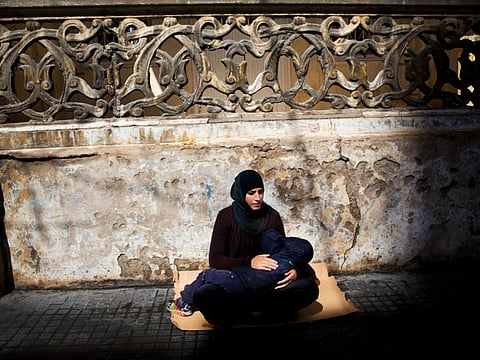Lebanon rejects proposal to naturalise Syrian refugees
Foreign Minister Jibran Bassil fears that the overwhelming number of Sunnis among Syrian refugees will tip the confessional balance of power

Beirut: Lebanon, where one out of every four residents is a refugee, rejected a proposal to naturalise the estimated 2 million Syrians if they chose to stay.
On Wednesday, senior officials responded to a pitch made by United Nations (UN) Secretary General Ban Ki-moon who argued that refugees should be given the right to apply for citizenship in host states.
The objective, while doable in most countries, confronted immense hurdles in Lebanon where a fragile and increasingly threatened confessional balance holds the country together and prevents a permanent fissure.
Rashid Derbas, the Minister of Social Affairs, said Ban and other world leaders know all too well “that Lebanon, with all its factions, sects and institutions, has a united stance on this regard,” and cannot tolerate such political diktats. He told reporters after attending a meeting of a ministerial committee on the refugee crisis chaired by Prime Minister Tammam Salam: “We hosted Syrian brothers just the way brothers should behave. We are a noble and generous people, but we are also patriotic. Out of our adherence to our patriotism and that of the Syrians, we refuse to give our nationality to anybody and don’t accept that others abandon their nationalities as well.”
Foreign Minister Jibran Bassil, who fears that the overwhelming number of Sunnis among Syrian refugees will tip the confessional balance of power, lambasted his own government’s rhetoric concerning Syrian refugees. “We all reject any naturalisation, but what are the measures that are being taken by the Lebanese government on this matter?” he wondered.
Although Bassil claimed that he brought up the issue of Syrian refugees at the eighteenth National Dialogue session that was held on Wednesday, it was unclear whether he raised the matter in Vienna on Tuesday, when he attended the latest international conference on the ongoing Syrian Civil War.
Beyond the rhetoric associated with rival political parties that used the Syrian refugee presence to imagine threats from extremist organisations such as Daesh and Jabhat Al Nusra, among others, Bassil warned that Lebanon will never kowtow to such pressure, but would encourage all refugees to return to their land. It was unclear how Beirut could implement such a vision.
Sign up for the Daily Briefing
Get the latest news and updates straight to your inbox



